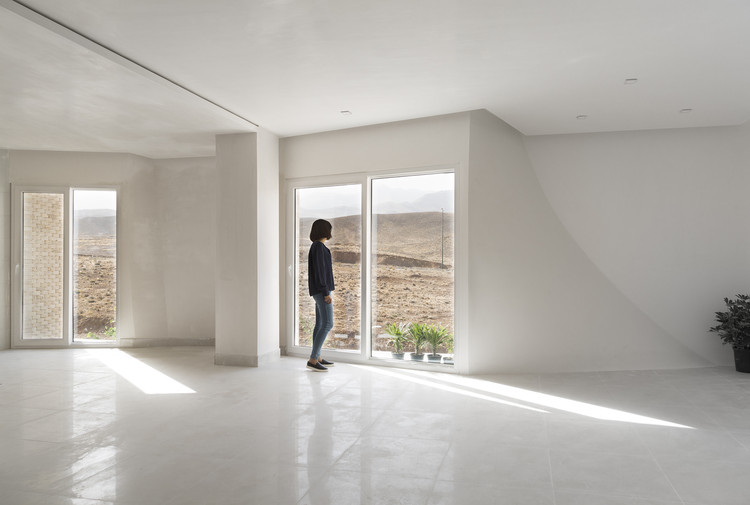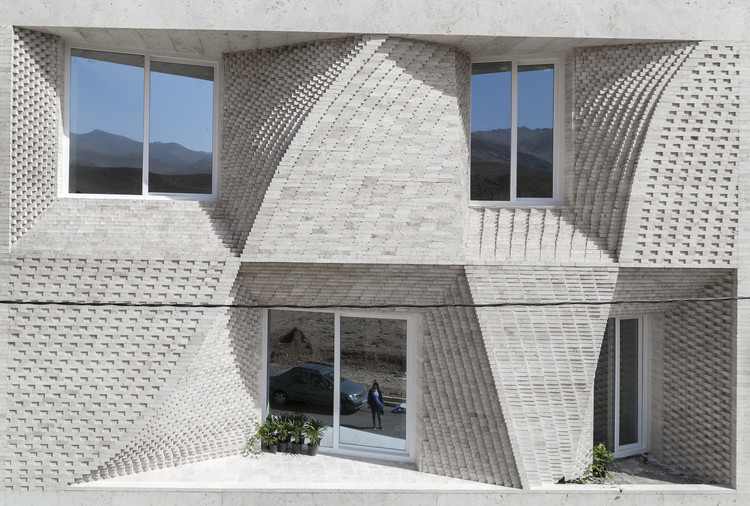
-
Architects: CAAT Studio
- Area: 290 m²
- Year: 2018
-
Photographs:Parham Taghioff
-
Manufacturers: Alvandtileco, Chauffagekar, Habibi Stone, Mahallat Alvand Concrete, Sarvestan co, WINTECH
-
Lead Architects: Mahdi Kamboozia, Helena Ghanbari

Text description provided by the architects. The project is located on a residential periphery of Mahallat, 262 kilometers southwest of Tehran with the hot and dry climate. The area surrounding the city is rich with travertine which is mainly because of the two significant travertine local mines called Hajiabad and Abbasabad. The project was delegated to the architect at a time when the structure and floors plates were already built and the client required a cost-effective project.





























